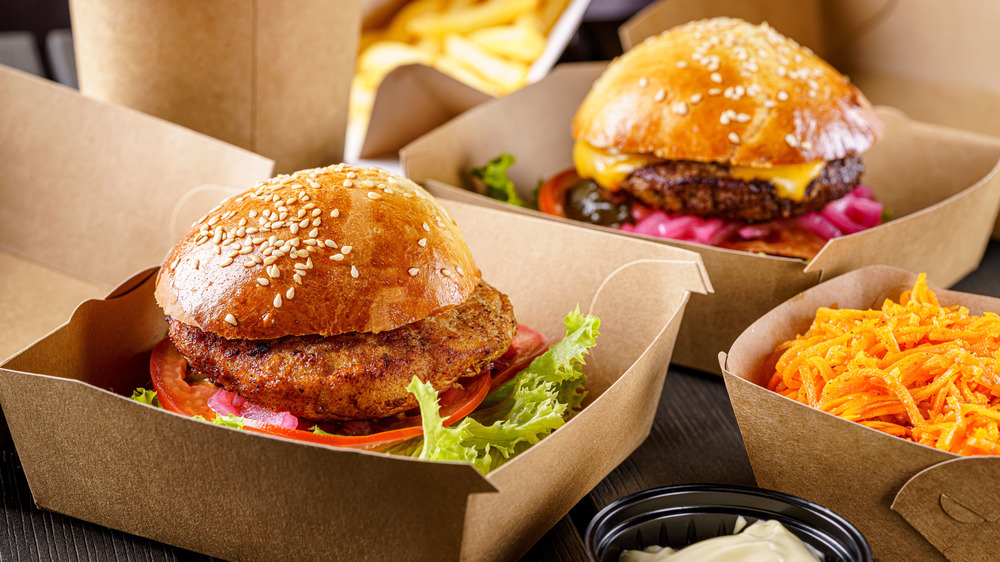Surprising Side Effects Of Eating Too Fast
Are you often the first one finished eating your meal and left waiting for the others around to catch up? Despite the potential boredom you may feel while waiting, gobbling down your food may also lead to a few surprising, and sometimes dangerous, side effects to your health.
But before we get to the side effects, it could be helpful to understand why many of us do in fact, eat too fast. According to the HuffPo, there are a few explanations. We live in a fast-moving culture which promotes quicker meal times. For example, your lunch is often not enjoyed if you are cramming it down while sitting at your desk during a short meal break. And oftentimes, we are distracted when we eat. This could be because you are driving or watching TV, but the outside disturbances could be causing you to mindlessly eat your food too quickly.
So aside from the boredom of waiting for others, what are the side effects? To begin with, NM tells us that eating too fast could lead to some major bloat and extra gassiness. Both of which are a major damper to your day (anyone who has struggled to button their jeans can attest). This happens because you are likely to swallow more air if you are "inhaling" your food. You're also not taking the time needed to chew your food and break it down into smaller portions, which would be a huge help for your digestive system.
Slow down if you want to avoid unnecessary weight gain
Another uncomfortable truth is that eating too quickly can lead to weight gain. And not just a few extra pounds. If you are in the habit of shoveling down your meals, then you are increasing your risk for obesity. In an analysis of 23 different studies reported via Healthline, it was concluded that people who ate too quickly were around twice as likely to become obese versus people who consumed their food at a slower pace. Continuing on with the more serious health threats your body faces from eating too fast, Clean Eating shares that fast eaters are more likely to have lower levels of "good cholesterol," have a larger waistline, and surprisingly, an increased risk of diabetes.
Luckily, there is a cure. Just slow down! NM points out that it often takes up to twenty minutes for your brain to signal that you are full. So next time you are hurriedly gobbling down a snack or meal, take a moment to really savor what you are eating to avoid any uncomfortable, unhealthy, and unnecessary harm to your body.


